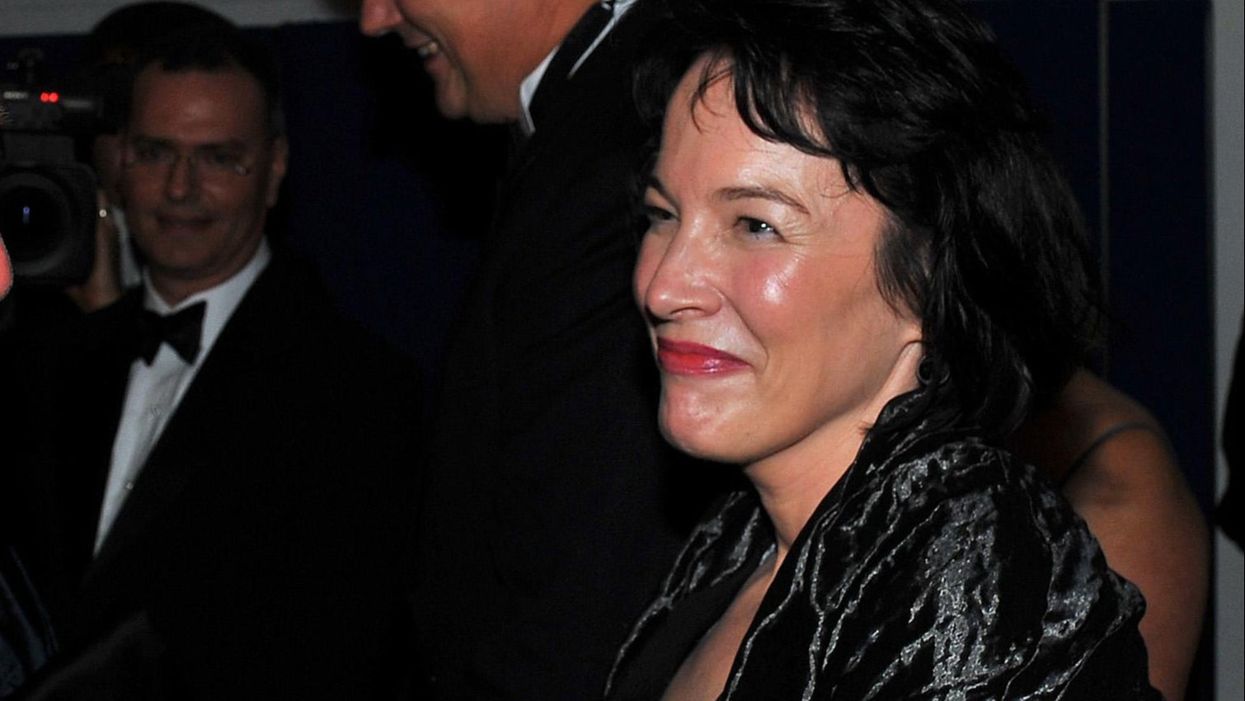Becca Monaghan
Dec 01, 2021
Alice Sebold, the best selling author of The Lovely Bones, has apologised to the man who was wrongly convicted of raping her.
Anthony Broadwater was sentenced to 16 years behind bars after being tried and convicted of the rape in 1982.
Broadwater insisted he was innocent but his conviction wasn’t overturned until last week.
Sebold had detailed her experience, which took place when she was a student at Syracuse University, in her memoir Lucky. She wrote how she had spotted Broadwater months after the incident and identified him as her attacker.
In her apology, Sebold said she was struggling with the role she played “within a system that sent an innocent man to jail”. A copy of the apology was sent to Broadwater so he could be the first to read it. He said he broke down into tears “of joy and relief”.
Here’s everything we know about the case, Broadwater’s exoneration and Sebold’s apology.
Sign up to our new free Indy100 weekly newsletter
Who is Alice Sebold?
The 58-year-old American author is best known for The Lovely Bones, a New York Times bestseller that was adapted into a film in 2010.
She also penned The Almost Moon and a memoir, Lucky, where she detailed the rape incident.
Her publishers Scribner, a division of Simon and Schuster, announced after Broadwater’s exoneration that distribution of all formats of the book would cease “while Sebold and Scribner together consider how the work might be revised.”
What happened when Sebold was attacked?
Sebold was raped as an 18-year-old student at Syracuse University in New York.
In Lucky, the author recalled the incident. Months later, she informed police that she had seen a black man in the street who she believed was her attacker.
Writing about it in her book, she wrote: “He was smiling as he approached. He recognised me. It was a stroll in the park to him; he had met an acquaintance on the street.
‘Hey, girl,’ he said. ‘Don’t I know you from somewhere?’”
She said she didn’t respond: “I looked directly at him. Knew his face had been the face over me in the tunnel.”
Sebold alerted police, but following Broadwater’s arrest she failed to identify him in a police line-up, picking a different man as her attacker because “the expression in his eyes told me that if we were alone, if there were no wall between us, he would call me by name and then kill me.”
Broadwater was still tried and convicted, based on her account and microscopic hair analysis – which has since been discredited.
After being sentenced to 16 years behind bars, Broadwater was released from prison in 1998 but remained on the sex offenders’ register.
On November 22, he was exonerated after a re-examination found he had been convicted on insufficient and now-discredited forms.
What did her apology say?
In an apologetic statement penned on the blogging platform, Medium, Sebold said that she was “grateful” that Broadwater had been vindicated.
“First, I want to say that I am truly sorry to Anthony Broadwater and I deeply regret what you have been through.
“I am sorry most of all for the fact that the life you could have led was unjustly robbed from you, and I know that no apology can change what happened to you and never will. Of the many things I wish for you, I hope most of all that you and your family will be granted the time and privacy to heal.
“40 years ago, as a traumatized 18-year-old rape victim, I chose to put my faith in the American legal system. My goal in 1982 was justice — not to perpetuate injustice. And certainly not to forever, and irreparably, alter a young man’s life by the very crime that had altered mine.
“I am grateful that Mr. Broadwater has finally been vindicated, but the fact remains that 40 years ago, he became another young Black man brutalized by our flawed legal system. I will forever be sorry for what was done to him.
“Today, American society is starting to acknowledge and address the systemic issues in our judicial system that too often means that justice for some comes at the expense of others. Unfortunately, this was not a debate, or a conversation, or even a whisper when I reported my rape in 1981.
“It has taken me these past eight days to comprehend how this could have happened. I will continue to struggle with the role that I unwittingly played within a system that sent an innocent man to jail. I will also grapple with the fact that my rapist will, in all likelihood, never be known, may have gone on to rape other women, and certainly will never serve the time in prison that Mr. Broadwater did.
“Throughout my life, I have always tried to act with integrity and to speak from a place of honesty. And so, I state here clearly that I will remain sorry for the rest of my life that while pursuing justice through the legal system, my own misfortune resulted in Mr. Broadwater’s unfair conviction for which he has served not only 16 years behind bars but in ways that further serve to wound and stigmatize, nearly a full life sentence.”
How did he respond?
“It comes sincerely from her heart,” Broadwater told Syracuse.com. “She knowingly admits what happened. I accept her apology. It was a big relief. It must have taken a lot of courage to come to terms and make that apology.”
“It’s still painful to me because I was wrongfully convicted, but this will help me in my process to come to peace with what happened,” he said.
What has the court said?
A New York Supreme Court justice found that the conviction of Broadwater relied heavily on Sebold’s testimony and have since discredited the method of microscopic hair analysis.
If you have been raped or sexually assaulted, you can contact your nearest Rape Crisis organisation for specialist, independent and confidential support. For more information, visit their website here.
Top 100
The Conversation (0)














